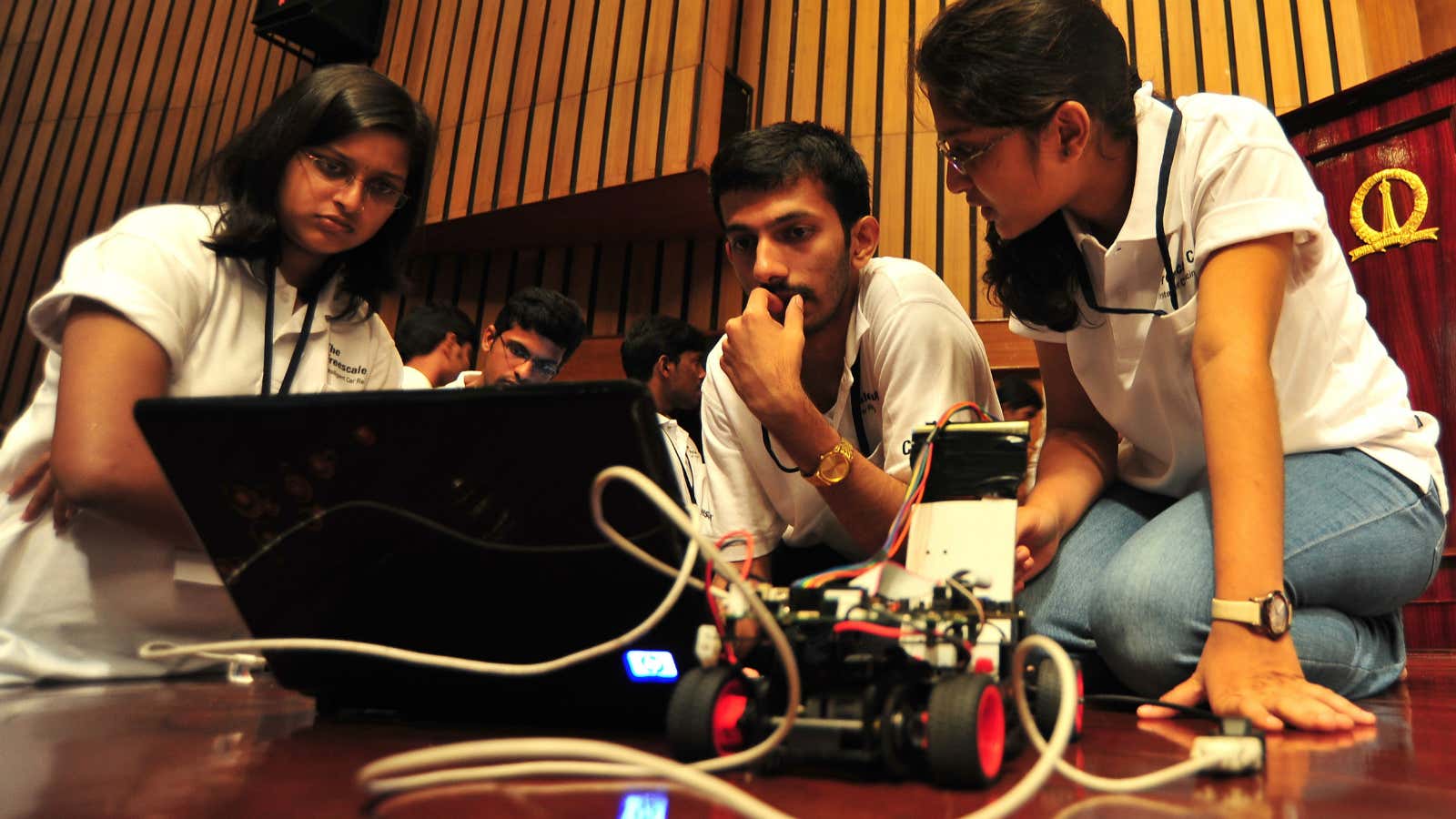India has come up with a solution to improve the quality of the engineers it churns out.
Over 60% of the 800,000 engineering graduates that India produces annually remain unemployed, the All India Council for Technical Education (AICTE), the apex body for technical education in India, says. So, to make them more employable, engineering colleges across the country will now have to ensure that undergraduate students complete three internships lasting between four and eight weeks each during the course of their programme. Currently, less than 1% participate in summer internships.
“The responsibility will be on the institution for helping the students in finding suitable industry or organisation for the internship,” India’s human resource development minister, Prakash Javadekar, told parliament on July 24 (pdf). “This resolution would be made applicable from the year 2017-18 onwards. The AICTE has taken steps to support the institutions in finding suitable internships by entering into agreement with agencies like LinkedIn and Internshala.”
Indians are obsessed with engineering, particularly since the IT boom. The mid-1990s saw a huge spike in the number of engineering graduates as demand increased in sectors ranging from IT to infrastructure.
That also led to the mushrooming of engineering colleges across the country—India has over 3,200 graduate engineering colleges. However, of these, only 15% have engineering programmes recognised by the National Board of Accreditation (NBA), an autonomous body that evaluates technical institutions and their programmes.
Meanwhile, in the past few years, several such institutes have had to shut down due to low enrollment levels.
The alumni of many of these institutes have been found wanting in terms of knowledge, training, and skill. In fact, in 2011, Nasscom, the IT and business processing units trade body, estimated that only 25% of India’s IT engineering graduates were employable. Last year, New Delhi-based employment solutions firm Aspiring Minds found that only 3% of such graduates were skilled enough to be employed, and only 7% could handle core engineering tasks.
Now, with thousands being laid off amidst the raging IT crisis, the government is looking at ways to improve their quality. It has made it compulsory for teachers to attend an annual refresher course through the government’s SWAYAM portal (an open online course platform).
“The curricula of our engineering institutions have not been revised for quite some time,” Anil Sahasrabuddhe , chairman, All India Council for Technical Education, told the Economic Times on July 26. “In the next 10 to 15 days, our new model curriculum will be announced. We will ask all states, universities and institutions to adopt that allowing some contextual changes if they feel necessary.”
